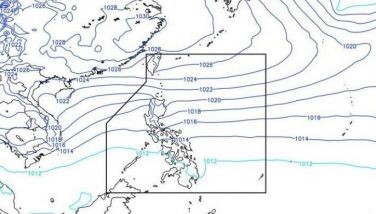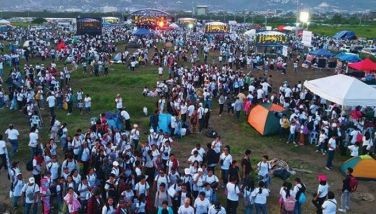Yolanda-hit farmers, fishermen facing income crisis, Oxfam says
MANILA, Philippines - Thousands of farmers and fishermen affected by typhoon “Yolanda†would face a looming “income crisis†if they do not get immediate food and livelihood support, an international humanitarian group said.
In a statement released six months after the onslaught of “Yolanda,†Oxfam said those in the agriculture and fisheries sector urgently need support for the next phase of recovery.
“The reality facing many poor people is that they are going to build back worse – not better. The initial emergency response by the Philippines Government and international community saved lives and prevented outbreaks of disease, but we cannot rest on this good work,†said Leo Roozendaal, Oxfam’s Asia Deputy Regional Director.
“The government is talking about the difficult issues that need to be tackled but there is not enough action,†he added.
Roozendaal said strong leadership is needed at all levels to speed up the recovery programs and help the poorest people get back on their feet.
About 6,300 persons died and more than four million others were displaced when “Yolanda†(international codename: Haiyan) pummeled the Visayas region last November.
The typhoon also damaged almost P90-billion worth of properties and affected about six million workers.
Farmer and fisher groups backed by Oxfam and its partner non-government organizations gathered in Tacloban last Wednesday to urge the government to look into their plight.
The groups asked the government to fast-track coconut tree clearing, stop the onset of rhinoceros beetle infestation, restore destroyed coral reefs and sea grass beds, and invest in small-scale aquaculture and seaweed farming.
They also called for the construction of safe evacuation centers and updating of contingency plans ahead of the next typhoon season.
Oxfam said 40 percent of disaster-hit households still live in makeshift shelters barely a month before the next typhoon season starts.
The group said farmers in Leyte are now facing threats of rhinoceros beetle infestation that may decimate remaining coconut trees and other crops.
“The pests came to our farms faster than the help of the government. We fear the situation will only worsen and rehabilitation will further slow down if the government does not take immediate action,†an Oxfam statement quoted Gilbert Negad of Coconut Banana Producers Federation of Leyte as saying.
Maria Mendoza, executive director of the Fair Trade Alliance, said coconut farmers have no way of earning money to support their families.
“The more we delay in clearing the farms, the more time it will take to plant quick-growing crops, and secure immediate food and income for small coconut farmers and their families,†she said.
Oxfam said fisher folk whose boats have been repaired have gone back to sea, only to return with catches less than half of the pre-Yolanda levels due to the destruction of marine ecosystems.
“Alternative livelihoods, such as small-scale aquaculture, are needed until the seas recover,†Oxfam said.
Al Bernarte, program coordinator of NGOs (non-government organizations) for Fisheries Reform, called on the government to conduct comprehensive coastal and marine resource assessments and to implement a rehabilitation plan.
Casimero Villas, chairperson of the San Joaquin-Cogon Fisher men and women Association of Palo, Leyte claimed that the Social Welfare department could not explain the criteria of what a hazard zone is.
“One of the government’s targeted relocation areas is prone to landslide, while the other one is prone to flooding, according to geohazard maps. The sad part is the government doesn’t seem to understand why we can’t be relocated very far away from the sea – this is where we get our sources of living,†he said.
Oxfam earlier said that the plight of “Yolanda†survivors could worsen if the government does not take into account livelihood opportunities in its relocation plans. – with a report from A. Perez
- Latest
- Trending





























